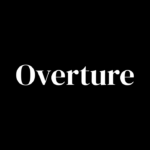Beyond Nonlawyer: Rethinking Legal Terminology And Workplace Equity
From compensation disparities to limited access to leadership roles, the use of such terminology not only diminishes the contributions of these professionals but also perpetuates a culture of inequality within the legal ecosystem.
 In the intricate landscape of the legal profession, the language we use to categorize professionals carries significant weight, reflecting and shaping workplace dynamics. Yet, one term stands out for its dismissive undertones: “nonlawyer.” Cat (The Technocat) Casey, a global legal technology leader, challenges this norm, drawing parallels between the treatment of nonattorney professionals in law firms and similar situations across industries. From compensation disparities to limited access to leadership roles, the use of such terminology not only diminishes the contributions of these professionals but also perpetuates a culture of inequality within the legal ecosystem. As we delve into Casey’s insights, we unravel the complexities surrounding language, workplace dynamics, and the broader quest for inclusivity and equity within the legal industry.
In the intricate landscape of the legal profession, the language we use to categorize professionals carries significant weight, reflecting and shaping workplace dynamics. Yet, one term stands out for its dismissive undertones: “nonlawyer.” Cat (The Technocat) Casey, a global legal technology leader, challenges this norm, drawing parallels between the treatment of nonattorney professionals in law firms and similar situations across industries. From compensation disparities to limited access to leadership roles, the use of such terminology not only diminishes the contributions of these professionals but also perpetuates a culture of inequality within the legal ecosystem. As we delve into Casey’s insights, we unravel the complexities surrounding language, workplace dynamics, and the broader quest for inclusivity and equity within the legal industry.
Olga V. Mack: Can you share your perspective on the terminology used to categorize professionals within the legal industry, particularly regarding the term “nonlawyer”? What parallels do you see between the treatment of nonattorney professionals in the legal field and similar situations in other industries?
Cat (The Technocat) Casey: No one in their right mind would ever call Sen. Bill Nelson, the head of NASA, a nonastronaut. And it is rude to call an amazing nurse a nondoctor. Yet, in the law firm world, no one gives a second thought to referring to everyone without an Esq. after their names as nonlawyers. From the mailroom to the executive suite, or in my situation as a global legal technology leader overseeing a $70 million book of business, all of us in a law firm who aren’t licensed attorneys are bundled into the downright dismissive category of nonlawyer.

Legal AI Tools And Assistants Essential For Legal Teams

Mack: How does the usage of certain terms, such as nonlawyer, impact workplace dynamics and professional relationships within law firms?
Casey: This wide-sweeping categorization of anyone missing an Esq. after their name as a nonlawyer devalues the mission-critical contribution of a wide variety of professionals on a case team or in law firm leadership. No one should be categorized as a nonentity as a term of art. In practice, it leads to differing benefits structure, levels of respect, and ability to advocate in areas of subject matter expertise within the confines of a law firm.
Mack: How do you believe advancements in legal technology and changes in state bar regulations influence the roles and perceptions of nonattorney professionals within law firms?
Casey: With the deluge of data and AI’s transformative impact on the practice of law, the impact of technical roles will only increase in importance. Marginalizing these mission-critical roles will lead to fewer people opting into law firms and perpetuate the undervaluation of anything beyond legal practice.
Sponsored

Referral Fees The Key To Growing A Modern Practice? Overture Thinks So.

Legal AI Tools And Assistants Essential For Legal Teams


Diving Into Generative AI: A Practical Guide For Law Firms Starting From Scratch

Diving Into Generative AI: A Practical Guide For Law Firms Starting From Scratch
Mack: Can you speak to the challenges faced by nonattorney professionals, including issues related to compensation, benefits, training, and access to leadership roles?
Casey: As a global director with a book of business rivaling most rainmakers, I was still offered lesser benefits, profit sharing, and upward mobility as a member of the nonlawyer cohort. Things like paternity leave, reproductive assistance, and leave for nontraditional routes to fertility were all denied as a result of being a nonlawyer. In the years since I left the law firm, this may have changed, but as a member of the leadership team, this second-class citizen approach to nonlawyers was jaw-dropping.
Mack: From your experience, how does the language and terminology used within law firms affect the recruitment and retention of talent?
Casey: 100% yes. As a leader in legal AI and eDiscovery, a large portion of the reason I left Biglaw was precisely this language-driven caste system. Even a first-year associate was valued above leaders of practice technology, paraprofessionals with decades of experience, and even C-suite executives. Those with talent and highly sought-after expertise in areas like AI would willingly subject themselves to being the legal equivalent of an untouchable.
Mack: What alternative terms or categorizations could better reflect the diverse roles and contributions of nonattorney professionals in the legal ecosystem?
Sponsored

Law Firms Now Have A Choice In Their Document Comparison Software

From AI To KPI: The Law Department Tech Trends Of 2024
Casey: I am a bit torn about any blanket term, as it will become the next nonlawyer euphemism. That said, something as simple as a legal professional or the term legal preceding an area of expertise like a legal technologist might work.
Mack: Beyond changing terminology, what broader cultural shifts do you think are necessary to create a more inclusive and equitable environment for all professionals within the legal industry?
Casey: Shifting terms alone will not undo all the damage resulting from a two-tier approach to law firms, but it is a start. There are different things licensed doctors can do in the medical field from what a nurse practitioner can. Still, there is also an understanding of how critical the tasks both professionals conduct are. A similar approach should be introduced, starting in legal education at law schools, as well as in paraprofessional programs and legal technology programs.
Mack: How can law firms and legal organizations better recognize and value the expertise and contributions of nonattorney professionals?
Casey: Law firms ought to retire differing benefits packages and programs for staff and attorneys and ensure the same investment in career development and career path. Creating opportunities for people who do not hold a lawyer role to participate in decision-making, committees relating to their areas of subject matter expertise, and potentially as advisors to the management committee. A diverse set of perspectives and expertise, especially regarding technical acumen, is critical as we navigate the AI and GAI renaissance.
Mack: What steps do you believe individuals and organizations should take to address biases and promote greater respect and appreciation for all professionals within the legal profession?
Casey: While there is no ABA directive to do so, I recommend individuals in law simply stop using the term nonlawyer. Refer to your colleagues by their title, area of subject matter expertise or heck, or just their name. That little step of demonstrating mutual respect and perhaps correcting when you see denigrating behavior or reference to legal professionals aside from lawyers will do more than any petition can alone. If you are a member of the dreaded nonlawyer cohort, respectfully demand your name or title be used, push back on caste system policies, and vocalize how you contribute. And if an organization refuses to offer you that level of basic human dignity, find an organization that will. A talent drought will motivate change.
As we navigate the intricate landscape of the legal profession, it’s crucial to scrutinize the language we use to categorize professionals. Cat (The Technocat) Casey’s poignant insights challenge us to rethink the pervasive use of the term nonlawyer and its implications on workplace dynamics. From undermining the contributions of nonattorney professionals to perpetuating a culture of inequality, the ramifications are undeniable. Casey’s call to action urges us to consider the petition for the American Bar Association to retire this dismissive terminology. Moreover, her reflections compel us to ponder broader cultural shifts needed to foster inclusivity and equity within the legal industry. Let’s heed this call and journey toward a more respectful and empowering professional environment.
 Olga V. Mack is a Fellow at CodeX, The Stanford Center for Legal Informatics, and a Generative AI Editor at law.MIT. Olga embraces legal innovation and had dedicated her career to improving and shaping the future of law. She is convinced that the legal profession will emerge even stronger, more resilient, and more inclusive than before by embracing technology. Olga is also an award-winning general counsel, operations professional, startup advisor, public speaker, adjunct professor, and entrepreneur. She authored Get on Board: Earning Your Ticket to a Corporate Board Seat, Fundamentals of Smart Contract Security, and Blockchain Value: Transforming Business Models, Society, and Communities. She is working on three books: Visual IQ for Lawyers (ABA 2024), The Rise of Product Lawyers: An Analytical Framework to Systematically Advise Your Clients Throughout the Product Lifecycle (Globe Law and Business 2024), and Legal Operations in the Age of AI and Data (Globe Law and Business 2024). You can follow Olga on LinkedIn and Twitter @olgavmack.
Olga V. Mack is a Fellow at CodeX, The Stanford Center for Legal Informatics, and a Generative AI Editor at law.MIT. Olga embraces legal innovation and had dedicated her career to improving and shaping the future of law. She is convinced that the legal profession will emerge even stronger, more resilient, and more inclusive than before by embracing technology. Olga is also an award-winning general counsel, operations professional, startup advisor, public speaker, adjunct professor, and entrepreneur. She authored Get on Board: Earning Your Ticket to a Corporate Board Seat, Fundamentals of Smart Contract Security, and Blockchain Value: Transforming Business Models, Society, and Communities. She is working on three books: Visual IQ for Lawyers (ABA 2024), The Rise of Product Lawyers: An Analytical Framework to Systematically Advise Your Clients Throughout the Product Lifecycle (Globe Law and Business 2024), and Legal Operations in the Age of AI and Data (Globe Law and Business 2024). You can follow Olga on LinkedIn and Twitter @olgavmack.







